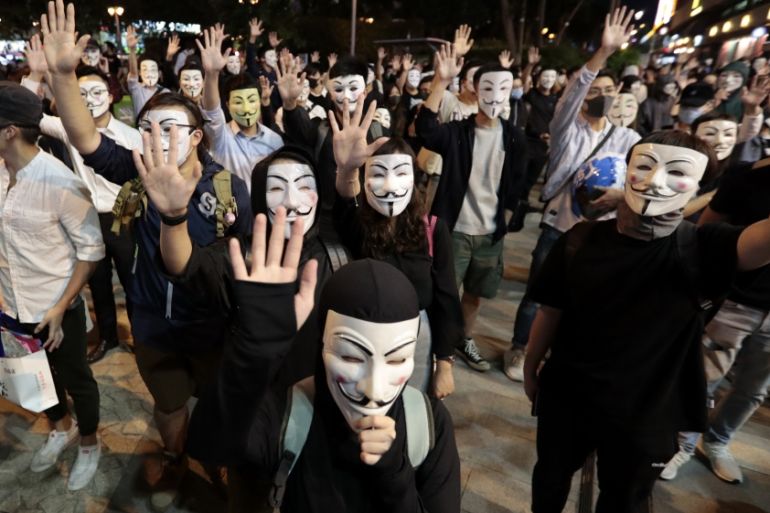Hong Kong court rules ban on face masks unconstitutional
Ban on face-coverings came into force in October when the territory’s leader invoked colonial-era legislation.

Hong Kong‘s high court has ruled that an emergency law revived by the government to ban protesters wearing face masks was unconstitutional.
It found the law was “incompatible with the Basic Law”, the mini-constitution under which Hong Kong returned to Chinese rule in 1997.
Keep reading
list of 4 itemsHong Kong’s new security law comes into force amid human rights concerns
Hong Kong passes tough new national security law
What is Article 23, Hong Kong’s new draconian national security law?
“The restrictions it imposes on fundamental rights … go further than is reasonably necessary … and therefore fail to meet the proportionality test,” the court said on Monday, according to a press summary.
The ban on face-covering came into force in October, when the city’s unelected pro-Beijing leader invoked colonial-era legislation for the first time in more than 50 years.
The move was seen as a watershed legal moment for the city since its return by Britain to China – but has been largely symbolic.
Public anger against Chinese rule in the semi-autonomous territory has underscored increasingly violent confrontations between police officers and demonstrators in the last five months.
Protesters, most of them wearing masks, have continued to clash with police on Monday, as they press their demands for more democratic rights in Hong Kong, as well as an independent inquiry into alleged brutality by the increasingly unpopular police force.
During the protests, participants have used face masks along with yellow helmets, goggles and respirators to protect themselves from tear gas, rubber-coated bullets and water cannon, and to avoid identification.
The demonstrations were ignited by a now-scrapped plan to allow extraditions to the mainland.
However, after Beijing and local leaders failed to respond to protesters’ further demands, the rallies snowballed into a wider movement calling for democratic freedom and police accountability.